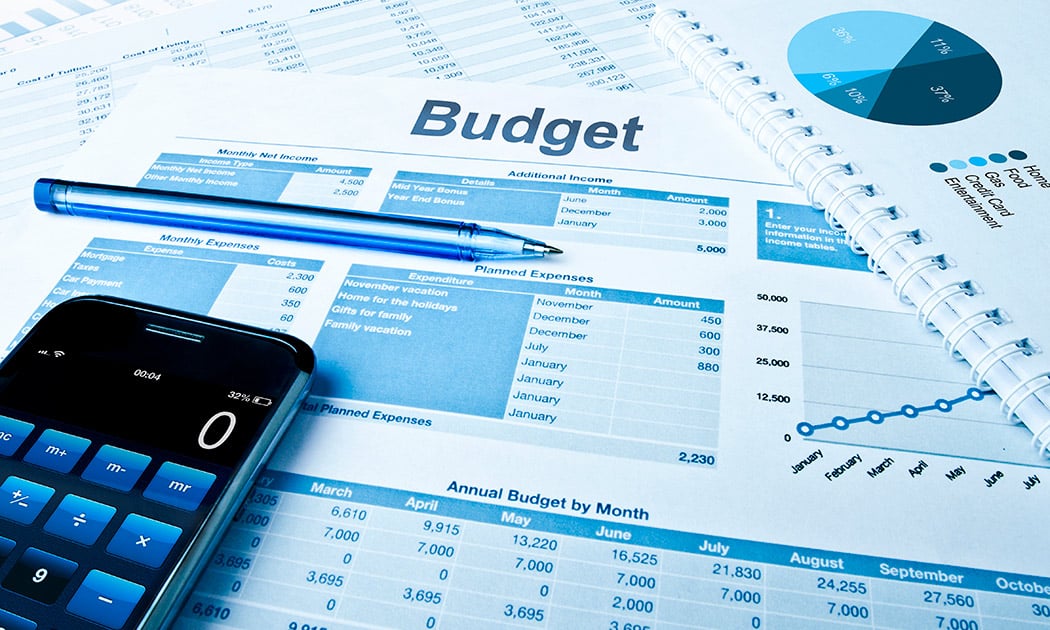The Payroll Blog
News, tips, and advice for small business owners
- Home
- Resources
- Payroll Blog
- How to Prevent Your Small Business From Ruining Your Personal Credit
How to Prevent Your Small Business From Ruining Your Personal Credit
It's age-old advice: Keep your professional life and personal life separate. But for small business owners, it can be hard to view the two as mutually exclusive. As an entrepreneur, you probably know a poor personal credit score can hamper your ability to finance your business. However, it's important to note that business debts can wind up harming your personal credit, too.

Fortunately, there are ways to protect — or at least minimize — any damage done to your consumer credit scores. Here are six ways to prevent your small business from ruining your personal credit:
1. Incorporate
Becoming an LLC, S Corp. or C Corp., in lieu of simply operating as a sole proprietor, provides protection when it comes to your personal liability for any debt your business incurs. Consider consulting an attorney to decide which option might work best for you.
2. Be Careful With Your Business Loans
Having said that, some business financing — and almost all business credit cards — require a personal guarantee, meaning you have to agree to pay the debts personally in order to score approval. Ask prospective lenders if and when they will report payments and balances to the consumer credit bureaus. (Many creditors will only tell if you're late or over-the-credit limit. Positive payment history may only be reported to the business credit bureaus.)
Moreover, no matter what financing you opt for, institute smart spending habits. Make sure all loan payments are on-time, and keep credit card balances below at least 30% (and ideally 10%) of your credit limits to preclude any negative effects to your business and/or personal credit scores.
3. Refrain From Using Personal Credit as Capital
It can be tempting to use your personal credit card to buy a new machine or fund your next supply run, but even small charges here and there can add up. Plus, any problems you run into with that personal plastic — missed payments, a high balance — will definitely end up on your consumer credit reports and affect your personal credit scores, so it's a good idea to avoid using those cards or other personal funds at all costs. To help with that ...
4. Get Insurance
Small business insurance can provide coverage "for every conceivable risk your business might face," says the Small Business Administration (SBA). General liability insurance, for instance, provides coverage for any legal issues that arise due to accident, injuries or claims of negligence. Meanwhile, commercial property insurance will cover loss and damages of company property due to fire, adverse weather events, vandalism and beyond. You can find a good primer on properly insuring your business on the SBA's website.
5. Establish an Emergency Fund ...
Of course, insurance won't cover every expense your business incurs, so be sure to include a contingency fund in your business plan. Experts generally recommend banking away at least three-to-six months of expenses for a rainy day. You can jump-start a currently tepid emergency fund by auto-rolling some revenue from your business checking account to your business savings account every month.
6. Keep Accounts Separate
Speaking of checking and savings, be sure to keep separate bank accounts for your business and personal finances, too. Sure, you may feel inclined to keep a single account, at least initially, to avoid paying a monthly maintenance fee, but co-mingling money can easily lead to disaster down the line. What happens if your math is off one month and you find yourself unable to pay the company bills? Plenty of financial institutions offer business checking accounts that waive those monthly fees — and some even tout special perks and privileges, like lower interest rates on small business loans or higher rates on money market accounts, designed specifically for small business owners. Do some research online or talk to your local bank or credit union to find the best deal.
Juggling your business credit and personal credit can be tricky, but instituting these best practices can go a long way. And, if your consumer credit has taken a hit due to your business already, take steps to raise your scores. You can generally fix your credit by getting accounts out of default, paying down high credit card balances and disputing any errors on your credit report.
Jeanine Skowronski is the executive editor of Credit.com. Her work has been featured by The Wall Street Journal, American Banker, TheStreet, Newsweek, Business Insider, Yahoo Finance, MSN, Fox Business, Forbes, CNBC and various other online publications. Follow her at @JeanineSko
Related Blog Posts
View Our Plans and Pricing
Small Business Is Our Business.
This website contains articles posted for informational and educational value. SurePayroll is not responsible for information contained within any of these materials. Any opinions expressed within materials are not necessarily the opinion of, or supported by, SurePayroll. The information in these materials should not be considered legal or accounting advice, and it should not substitute for legal, accounting, and other professional advice where the facts and circumstances warrant. If you require legal or accounting advice or need other professional assistance, you should always consult your licensed attorney, accountant or other tax professional to discuss your particular facts, circumstances and business needs.



